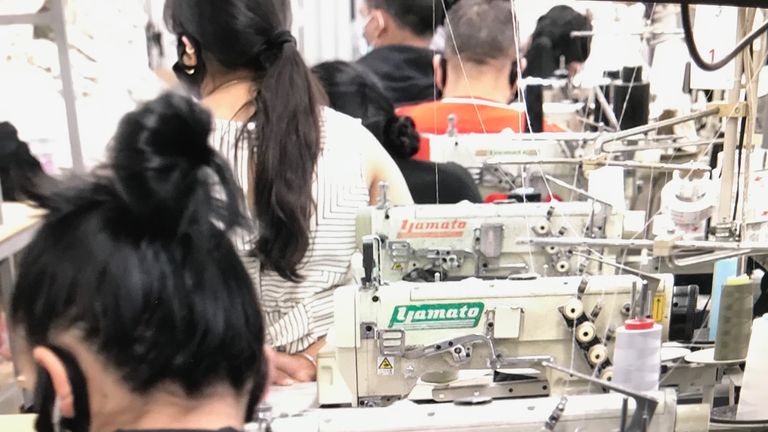MPs call for adjudicator to stamp out abuses in UK fashion supply chain
MPs have urged the government to set up an adjudicator to stamp about abuses in the UK fashion supply chain – after hearing evidence of underpayment of wages and poor conditions.
The Commons Environmental Audit Committee (EAC) said voluntary initiatives by the sector had failed to produce improvements.
Introducing a garment trade adjudicator to police the industry could help stop breaches of labour market regulation in the industry, the committee said.
The MPs have been taking evidence on abuses among domestic and global supply chains used by British retailers.
EAC chairman Philip Dunne said: “The committee has been shocked by revelations over the last three years of labour market exploitation, under our very noses, in certain quarters of the UK’s garment industry.
“It is abundantly clear that voluntary corporate social responsibility initiatives are not leading to sufficient progress being made.
“Therefore, a compulsory initiative such as the garment trade adjudicator should be fully explored and consulted on.”
In a letter to Business Secretary Kwasi Kwarteng, the committee said: “Purchasing a garment with a ‘Made in the UK’ label ought to be a guarantee that the workers who produced it are paid at least the minimum wage, in a workplace which is safe.
“We found that it is not.”
The committee heard evidence from the British Retail Consortium (BRC) that garment workers in the UK were being underpaid by more than £2m a week.
There were also claims by campaigners, heard by the MPs, that workers in some factories in Leicester were forced to work during the first lockdown.
The committee was also told of concerns about the use of forced and prison camp labour in supply chains, notably those linked to the Xinjiang region of China.
A government spokesperson said: “Exploiting vulnerable workers for commercial gain is despicable and the government will not stand for it.
“A multi-agency enforcement taskforce has been operating in Leicester since July 2020 to respond to allegations of labour market abuses and we continue to engage with the sector to understand the systemic issues that lead to non-compliance and what measures can be used to tackle them.”
Source: Read Full Article



